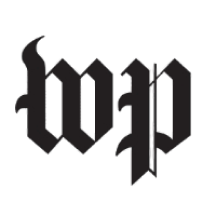
By Howard Schneider
WASHINGTON (Reuters) -Slowing payroll growth in the U.S. is likely due more to weaker demand for workers than the drop in the labor force from tightened immigration policy, an important distinction in the U.S. Federal Reserve's debate about further interest rate cuts, San Francisco Fed President Mary Daly said on Monday.
In a new essay Daly said slowing wage growth means the drop in monthly job gains shows businesses need fewer workers and aren't just struggling to find new employees amid the Trump administration's immigration crackdown.
Monthly job growth fell from around 150,000 per month in 2024 to around 50,000 in the first half of 2025.
"Demand for workers has fallen — it just happened to be met with a nearly coincident decline in the labor supply" that, also coincidentally, kept the unemployment rate steady, Daly said.
"Nominal and real wage growth have slowed overall as the labor market has cooled, even in many sectors where foreign-born workers were a larger share of employment," she said. "If the slowing in payroll employment growth was mostly structural, related to labor supply, the opposite would be true."
Daly, in the essay, did not say if she favored another rate cut at the Fed's December meeting.
But her conclusions about the labor market are important to the debate. Central bankers feel the changes they make in borrowing costs have the most influence over aspects of the economy related to the business cycle - like the demand for workers that ebbs and flows with economic activity - and cannot do as much about "structural" changes like the drop in foreign-born labor.
Similarly, she said she felt the impact of tariffs on prices "has not led to more broad-based and persistent inflation dynamics. Indeed, so far, the effects of the tariffs have largely been confined to goods, with little spillover."
She said the Fed has "appropriately" reduced borrowing costs by a quarter of a percentage point at its last two meetings, but now needs to assess if the U.S. is still at risk of a breakout of inflation and needs to keep policy somewhat tight, or is on the verge of a productivity boom driven by artificial intelligence that could fuel growth without a rise in prices.
"Getting policy right will require an open mind and digging for evidence on both sides of the debate," she said.
(Reporting by Howard Schneider; Editing by Hugh Lawson)

 Reuters US Business
Reuters US Business
 The Journal Gazette
The Journal Gazette The Babylon Bee
The Babylon Bee Click2Houston
Click2Houston New Hampshire Union Leader
New Hampshire Union Leader Washington Examiner
Washington Examiner  New Jersey News
New Jersey News WUSA 9 News
WUSA 9 News The Washington Post
The Washington Post AlterNet
AlterNet 5 On Your Side Sports
5 On Your Side Sports